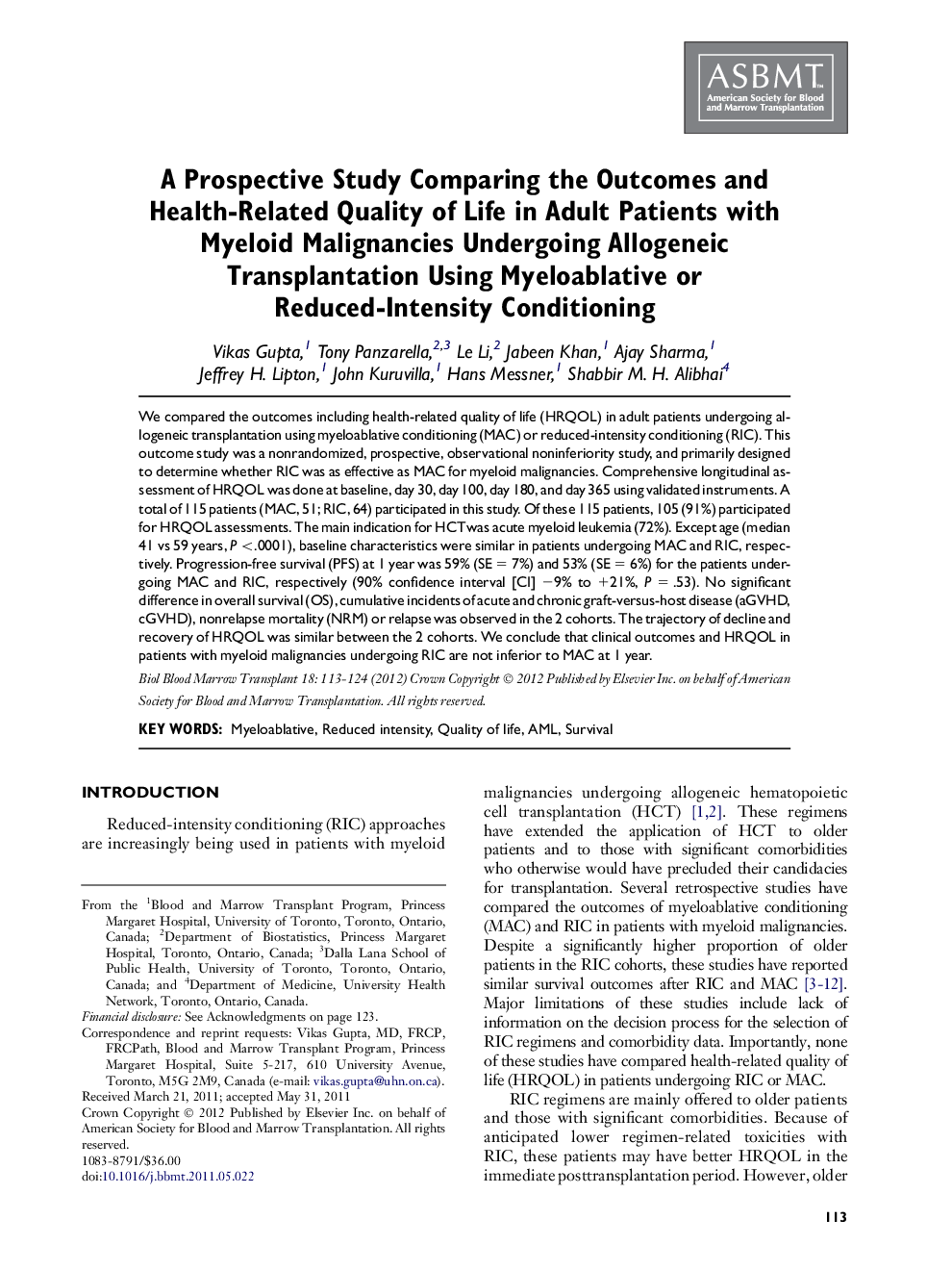| Article ID | Journal | Published Year | Pages | File Type |
|---|---|---|---|---|
| 2103048 | Biology of Blood and Marrow Transplantation | 2012 | 12 Pages |
We compared the outcomes including health-related quality of life (HRQOL) in adult patients undergoing allogeneic transplantation using myeloablative conditioning (MAC) or reduced-intensity conditioning (RIC). This outcome study was a nonrandomized, prospective, observational noninferiority study, and primarily designed to determine whether RIC was as effective as MAC for myeloid malignancies. Comprehensive longitudinal assessment of HRQOL was done at baseline, day 30, day 100, day 180, and day 365 using validated instruments. A total of 115 patients (MAC, 51; RIC, 64) participated in this study. Of these 115 patients, 105 (91%) participated for HRQOL assessments. The main indication for HCT was acute myeloid leukemia (72%). Except age (median 41 vs 59 years, P < .0001), baseline characteristics were similar in patients undergoing MAC and RIC, respectively. Progression-free survival (PFS) at 1 year was 59% (SE = 7%) and 53% (SE = 6%) for the patients undergoing MAC and RIC, respectively (90% confidence interval [CI] −9% to +21%, P = .53). No significant difference in overall survival (OS), cumulative incidents of acute and chronic graft-versus-host disease (aGVHD, cGVHD), nonrelapse mortality (NRM) or relapse was observed in the 2 cohorts. The trajectory of decline and recovery of HRQOL was similar between the 2 cohorts. We conclude that clinical outcomes and HRQOL in patients with myeloid malignancies undergoing RIC are not inferior to MAC at 1 year.
